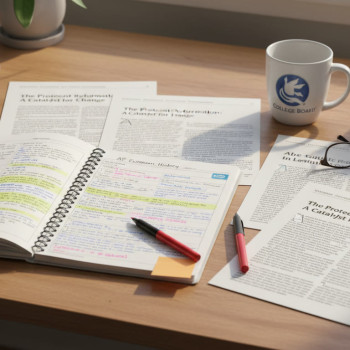Welcome: Why This Bridge Matters
Switching from CBSE Computer Science or Informatics Practices (CS/IP) to the AP Computer Science Principles (AP CSP) is an exciting step. You’re not just learning new facts — you’re learning new ways of thinking: how to simplify complex systems with abstraction and how to treat data with responsibility and care. Whether you are a student curious about computing or a parent guiding a future coder, this blog is a warm, practical roadmap to the ideas, habits, and strategies that make the journey both meaningful and successful.

What AP CSP Values (and Why That Fits CBSE Students)
AP CSP assesses computational thinking across several themes — creativity, data, algorithms, programming, the internet, and the societal impacts of computing. CBSE CS and IP already give you a foundation: problem-solving, logical thinking, and exposure to programming concepts. AP CSP, though, nudges you to think broader: to see how data shapes decisions, how abstractions let us manage complexity, and how technology affects communities.
Key Concepts to Focus On
- Abstraction: Learn to zoom out and focus on what matters. Abstraction helps you hide details that are irrelevant to the task at hand.
- Data and Data Representation: How information is collected, represented, and interpreted.
- Algorithms and Programming: Creating step-by-step solutions and expressing them clearly in code.
- Impacts of Computing: Ethical, legal, and social consequences — especially data privacy, bias, and transparency.
- Collaboration and Communication: Explaining your ideas, documenting decisions, and working with others.
This lens — abstraction plus ethics — is where CBSE strengths meet AP CSP expectations. Let’s unpack the two central themes in more depth.
Abstraction: The Skill of Managing Complexity
Think of abstraction as the art of making complexity useful. A smartphone app, a game, or a social-media algorithm is made up of thousands of tiny pieces. No person can hold all that detail in their head at once. Abstraction lets us create manageable, meaningful chunks.
Concrete Examples of Abstraction
- Functions and Procedures: In programming, a function names a repeated process so you don’t repeat code. CBSE examples of modular code are directly relevant here.
- Data Structures: Lists, tables, and dictionaries organize information so you can access it quickly without remembering every detail.
- Interfaces: When you use a library or an API, you rely on an abstraction: you call a function without knowing its inner workings.
- Modeling: Drawing a flowchart or sketching a system diagram abstracts real-world complexity into simplified representations.
How to Practice Abstraction Effectively
Abstraction is a muscle. Strengthen it with regular practice:
- Start small: When you write code, ask: what is one task I can name and reuse? Turn that into a function.
- Refactor: Take a working program and simplify it. Break long sections into smaller named parts.
- Draw before you code: Sketch the parts of a system and label responsibilities. This clarifies what needs to be abstracted.
- Explain it aloud: Teaching a friend or parent forces you to pick what matters and hide the rest.
Example: Building a Simple Quiz App
Let’s say you’re building a quiz app for a class. Instead of writing one long script that displays questions, checks answers, and computes scores, you create abstractions:
- A Question object (text, options, correct answer)
- A QuizManager that handles progress and scoring
- A UI layer that only displays data and accepts inputs
With these parts, you don’t think about how the score updates every time — you call QuizManager.updateScore(). That clarity keeps you focused on improving features instead of debugging a tangled mess.
Data Ethics: Why It’s Not Optional
AP CSP intentionally asks students to think about the societal impacts of computing. Data ethics isn’t a side note — it’s central. When you collect, analyze, or present data, your choices can affect privacy, fairness, and trust.
Core Ethical Themes to Know
- Privacy and Consent: Who has the right to collect and use data? Did they give meaningful consent?
- Bias and Fairness: Does the dataset misrepresent or exclude groups? Does an algorithm treat people unequally?
- Transparency and Explainability: Can people affected by a system understand how decisions were made?
- Data Quality and Representation: Are measurements accurate? Are they used appropriately?
- Responsible Reporting: Presenting data clearly, avoiding misleading graphs or cherry-picked results.
Practical Classroom Examples
Try these classroom-sized case studies to make ethics concrete:
- A school conducts an attendance-tracking experiment using location data — discuss consent and whether students should opt out.
- A dataset of exam scores from different regions shows disparities — how might missing context or sampling bias lead to wrong conclusions?
- An image-classification model mislabels people from certain backgrounds — investigate training data and propose corrective steps.
How to Prepare for the AP CSP Perspective Questions
AP CSP evaluates how well you can reason about impacts. Practice by:
- Writing short analyses: state stakeholders, possible harms, benefits, and mitigation strategies.
- Comparing scenarios: What changes if data is anonymized? What if it’s shared with third parties?
- Proposing technical and non-technical fixes: policy, design, clearer consent flows.
Study Plan: From CBSE Skills to AP CSP Mastery
Here’s a realistic roadmap for a semester of preparation. It blends concept study, hands-on projects, and ethics reflections — the combination AP CSP rewards.
| Week Range | Main Focus | Activities | Outcome |
|---|---|---|---|
| Weeks 1–2 | Foundations (Variables, Control Flow) | Refresh CBSE basics, short coding exercises, flashcards | Fluency writing small programs |
| Weeks 3–5 | Abstraction & Modular Design | Refactor projects, practice functions/classes, design diagrams | Ability to decompose systems |
| Weeks 6–8 | Data Representation & Analysis | Collect small datasets, make visualizations, compute summary stats | Comfort working with real data |
| Weeks 9–11 | Algorithms & Complexity | Study common algorithms, time/space basics, write pseudocode | Clear algorithm explanations |
| Weeks 12–14 | Data Ethics & Impacts | Case studies, write impact analyses, propose mitigations | Strong ethical reasoning |
| Weeks 15–16 | Project Polishing & Practice Exams | Finalize Create Performance Task-style project, timed practice tests | Exam confidence and polished portfolio |
Notes on the Project Component
AP CSP includes a performance task where students design and develop a program and reflect on its development and impacts. For CBSE students: choose a project that ties to your interests — a data visualizer for school activity registrations, a simple app that helps study schedules, or a small game that teaches a subject. The best projects show thoughtful abstraction, consistent data handling, and honest ethical reflection.
Practice Activities That Build Both Skills
These are bite-sized tasks that combine abstraction and ethics — great for weekly practice.
- Create a program that summarizes a dataset (e.g., class test scores), then write a one-paragraph ethical analysis: what would you reveal publicly? What privacy safeguards are needed?
- Take an existing block of code and refactor it into functions. Document the responsibilities of each function in comments.
- Design a mini-API for a library (describe inputs/outputs) — focus on the interface, not the implementation.
- Compare two visualizations of the same data and explain which one is more honest and why.
How to Study Smart — Not Just Hard
Active Learning Beats Passive Review
Sitting and re-reading notes feels productive, but active practice is what builds skill. Code daily, explain concepts aloud, and test yourself with mini-challenges. Swap review sheets with classmates and critique each other’s abstractions and ethical analyses.
Use Real Projects to Demonstrate Understanding
The AP Create task values development artifacts and reflection. Keep a development journal: sketches, failed approaches, performance considerations, and ethical decisions. These notes are gold when writing reflections because they show authentic decision-making.
Simulate the Exam Environment
Time yourself on short response questions and practice writing concise ethical analyses under time pressure. Clear, structured answers score better than long-winded ones.
The Role of Personalized Tutoring
Every student learns differently. Some need guided problem decomposition; others want targeted feedback on their performance tasks. Personalized tutoring can accelerate progress by identifying your specific gaps and giving focused practice.
For example, Sparkl’s personalized tutoring blends 1-on-1 guidance, tailored study plans, expert tutors, and AI-driven insights to help students refine abstractions, structure their performance tasks, and practice ethical reasoning. A tutor can review your project drafts, simulate AP-style questions with you, and suggest improvements that make your reflections clearer and more persuasive.
When to Consider Tutoring
- If you’re struggling to decompose problems into functions or modules.
- If you’re unsure how to collect or represent data responsibly.
- If you want personalized feedback on end-to-end projects or timed practice exams.
Sample Rubric: What Examiners Look For
The AP CSP scoring rubric rewards clear computational thinking and honest ethical reflection. Use this simple rubric to self-assess your practice tasks and project drafts.
| Criteria | Excellent | Needs Improvement |
|---|---|---|
| Abstraction | Clear modular design; functions/classes named and documented | Monolithic code; repeated logic; unclear responsibilities |
| Data Handling | Appropriate representation; accurate summaries; documented assumptions | Poorly explained data choices; missing context; errors in computation |
| Ethical Reflection | Considers stakeholders, risks, benefits, and mitigation strategies | Superficial treatment; ignores harms or overlooks privacy |
| Communication | Clear explanations, comments, and concise write-ups | Disorganized write-up, unclear variable names, missing documentation |
Common Pitfalls and How to Avoid Them
- Over-Engineering: Students sometimes build huge systems when a simple abstraction would do. Focus on the minimum viable product and iterate.
- Ignoring Edge Cases: Tests reveal where abstractions fail. Write inputs that challenge your design and fix the problems early.
- Shallow Ethical Responses: Don’t just say “privacy is important.” Name stakeholders, possible harms, and specific mitigations (encryption, informed consent, data minimization).
- Poor Documentation: Keep a development log. Future you (and the AP reader) will thank you when you need to explain choices.
Parent Guide: How to Support Without Doing the Work
Parents are vital in creating a supportive environment. Here’s how you can help constructively:
- Encourage regular, distraction-free study blocks and celebrate progress, not just grades.
- Ask your child to explain an abstraction or an ethical choice in plain language — if they can teach it, they understand it.
- Provide resources: a quiet workspace, a reliable laptop, and time for project development.
- Consider targeted tutoring if your child needs specific help with project feedback or timed practice.
Final Checklist Before Submission or Exam Day
- Your project has clear modular components (functions/classes) with comments explaining responsibilities.
- Data used in the project is documented: source, collection method, and preprocessing steps.
- Reflection includes stakeholders, risks, benefits, and mitigation strategies — be specific.
- You have run tests and documented edge cases and fixes.
- You’ve practiced timed responses and have a short study plan for the final weeks.
Parting Thoughts: Confidence, Curiosity, and Care
Moving from CBSE CS/IP to AP CSP is less a leap and more a widening of view. You already know how to make programs work. Now you’ll learn to make programs that communicate, that respect people, and that solve problems thoughtfully. Study the mechanics, yes — but also practice the softer skills of explanation, documentation, and ethical reasoning. Those are the parts that make your work persuasive and trustworthy.
If you ever feel stuck, targeted support can help you move faster than struggling alone. Personalized tutoring—like Sparkl’s 1-on-1 guidance and tailored study plans—can give precise feedback on your abstractions, help you tighten your data handling, and sharpen the reflections AP CSP demands.
Above all, keep your curiosity alive. Ask why a dataset looks the way it does, wonder how a system might fail, and imagine ways to make technology kinder. That curiosity, combined with disciplined practice, will take you far.

Quick Resources to Build a Daily Habit
- Code 20–30 minutes daily with focused goals (refactor one function, write one test).
- Write one ethical reflection per week on a dataset or app idea (200–300 words).
- Pair up with a classmate weekly to exchange feedback on abstractions and documentation.
- Schedule two timed practice sessions per month to build exam endurance.
Final Encouragement
This path rewards patience. Abstraction and ethical thinking don’t appear overnight, but they compound. Each small improvement — a cleaner function, a clearer explanation, a better privacy decision — makes your work stronger and your thinking sharper. Embrace iteration, seek feedback, and don’t be afraid to simplify. The best solutions are simple, well-documented, and designed with people in mind.
Good luck — and enjoy the journey from CBSE CS/IP to AP CSP. You’re not just preparing for an exam; you’re learning how to build technology that matters.













No Comments
Leave a comment Cancel